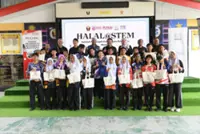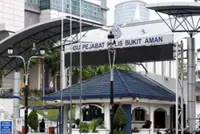UNIVERSITI Putra Malaysia’s (UPM) University Community Transformation Centre (UCTC) organised a programme called Edu-Park to foster children’s interest in agriculture.
A total of 28 children aged seven to 15 participated in the programme, learning through hands-on experience about the importance of agriculture as a food source, developing new skills in agriculture, and recognising animal anatomy.





